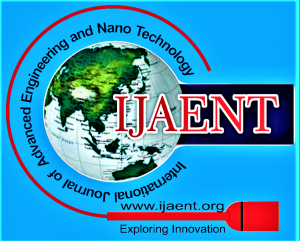![]()
Generative AI
Guntamukkala Gopi Krishna
Guntamukkala Gopi Krishna, B Tech, Department of Computer Science and Engineering, Lovely Professional University CSE Block, Guntur (Andhra Pradesh) India.
Manuscript received on 21 June 2023 | Revised Manuscript received on 07 July 2023 | Manuscript Accepted on 15 August 2023 | Manuscript published on 30 August 2023 | PP: 1-3 | Volume-10 Issue-8, August 2023 | Retrieval Number: 100.1/ijaent.G04740710723 | DOI: 10.35940/ijaent.G0474.0810823
Open Access | Editorial and Publishing Policies | Cite | Zenodo | Indexing and Abstracting
© The Authors. Published By: Blue Eyes Intelligence Engineering and Sciences Publication (BEIESP). This is an open access article under the CC-BY-NC-ND license (http://creativecommons.org/licenses/by-nc-nd/4.0/)
Abstract: Recent advancements in generative artificial intelligence (AI) have made it possible for machines to independently produce avariety of creative content. In the context of producing creative content, this essay examines the developments, difficulties, and ethical issues relating to generative AI. It looks into how generative models, such Generative Adversarial Networks (GANs) and Variational Auto encoders (VAEs), can produce realistic artwork like music, literature, and visuals. However, it is frequently discovered that GAN training is extremely unstable and frequently experiences non-convergence, mode collapse, and hyperparameter sensitivity [1]. The technical details of developing and optimizing generative models to produce desired results are covered in detail in this work. It also looks at the difficulties in guaranteeing the variety, creativity, and coherence of generated content. Additionally, the use of generative AI in the creation of original material raises ethical questions. Included in this are concerns about intellectual property, plagiarism, and possible effects on the creative industries. In specifically, the article explores the consequences of employing generative AI for content production in terms of authorship, human creativity, and the possible disruption of traditional creative practices. It also covers issues with fairness, bias, and appropriate application of generative models.
Keywords: AI, GANs, VAEs
Scope of the Article: Artificial Intelligence
